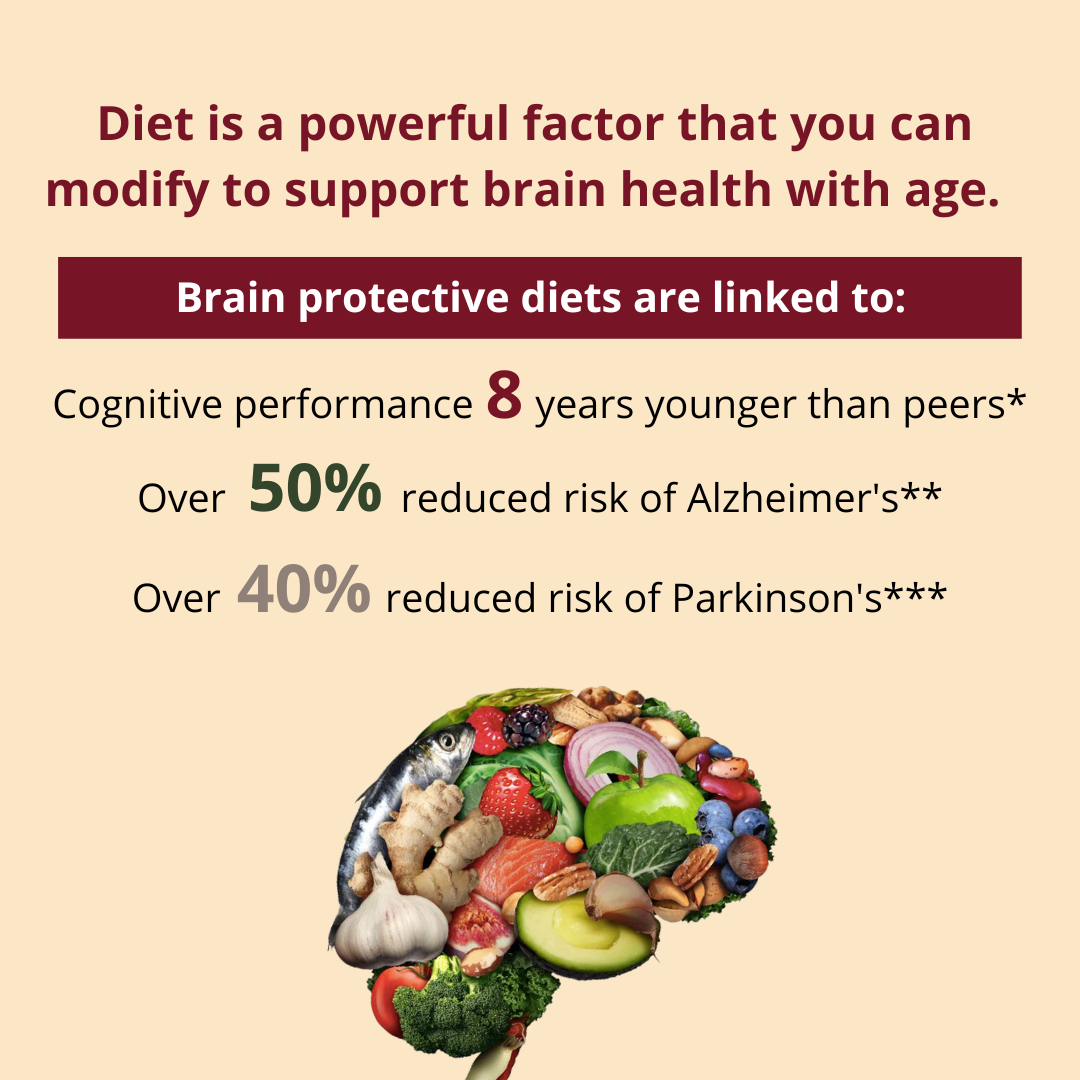Sep 21, 2023
Top Three Dietary Approaches for Dementia prevention

Whether you or a loved one is struggling with or are concerned about memory loss, it’s worth knowing that there is a lot you can do with food and lifestyle to help.
Just like you would with any major health concern, the best thing to do is to talk to your doctor as a starting point if you’re worried. They will be able to evaluate your situation and may signpost you to resources and groups that might help support you. It’s possible – though unlikely – that the doctor will know about the food and lifestyle strategies that would help. They’re just not given the training, but I can help. I want you to know that what you eat (both historically and also what you eat from now on) plays a critical role in brain health. If you or someone you know and love has been told they have some kind of cognitive impairment, I wrote this for you.
Diet has been found to have a significant impact on the prevention and progression of Alzheimer's disease (Stefaniak et al., 2022). A number of studies have reported that what you eat, and your lifestyle strongly influence the risk of cognitive decline, dementia, and Alzheimer's disease (Sousa & Guimarães, 2015).
Mediterranean Diet
One well-studied diet for Alzheimer's disease prevention is the Mediterranean diet (Sousa & Guimarães, 2015). It’s diet that is do-able for many and you may have heard of this already. It favours real food over processed foods, which is a benefit for each and every one of us regardless of our current health status. The diet promotes good quality, lean protein like meat, fish, eggs and vegetarian sources like beans and lentils, healthy fats like olive oil, nuts and seeds, plenty of fruit and vegetables, plus wholegrains like brown rice and wholemeal bread.
The Mediterranean diet has long been associated with increased longevity and a lower risk of chronic diseases, including Alzheimer's disease (Sousa & Guimarães, 2015), as well as cardiovascular disease and certain cancers.
Further work demonstrates cognitive and Alzheimer's disease biomarkers, including the APOE genotype, may be influenced by the diet (Farmer et al., 2019).
Ketogenic Diet
Another dietary approach that has gained popularity as a nutritional intervention is the ketogenic diet (Rusek et al., 2019). Since Alzheimer’s is sometimes referred to as Type 3 Diabetes for its links to blood glucose regulation, it’s small wonder that a diet high in fat and very low-carbohydrates (like bread, pasta, potatoes, rice and sugar or refined foods of any kind) has been shown to have great potential as a therapeutic strategy for the disease (Rusek et al., 2019). As the ketogenic diet is likely to be a stretch from whatever you’re currently eating, it's worth working with a nutrition coach to support you to find the best diet for your condition and to motivate you to follow it for long enough that it becomes second nature – and, of course, for you to experience the therapeutic benefit.
Read more
